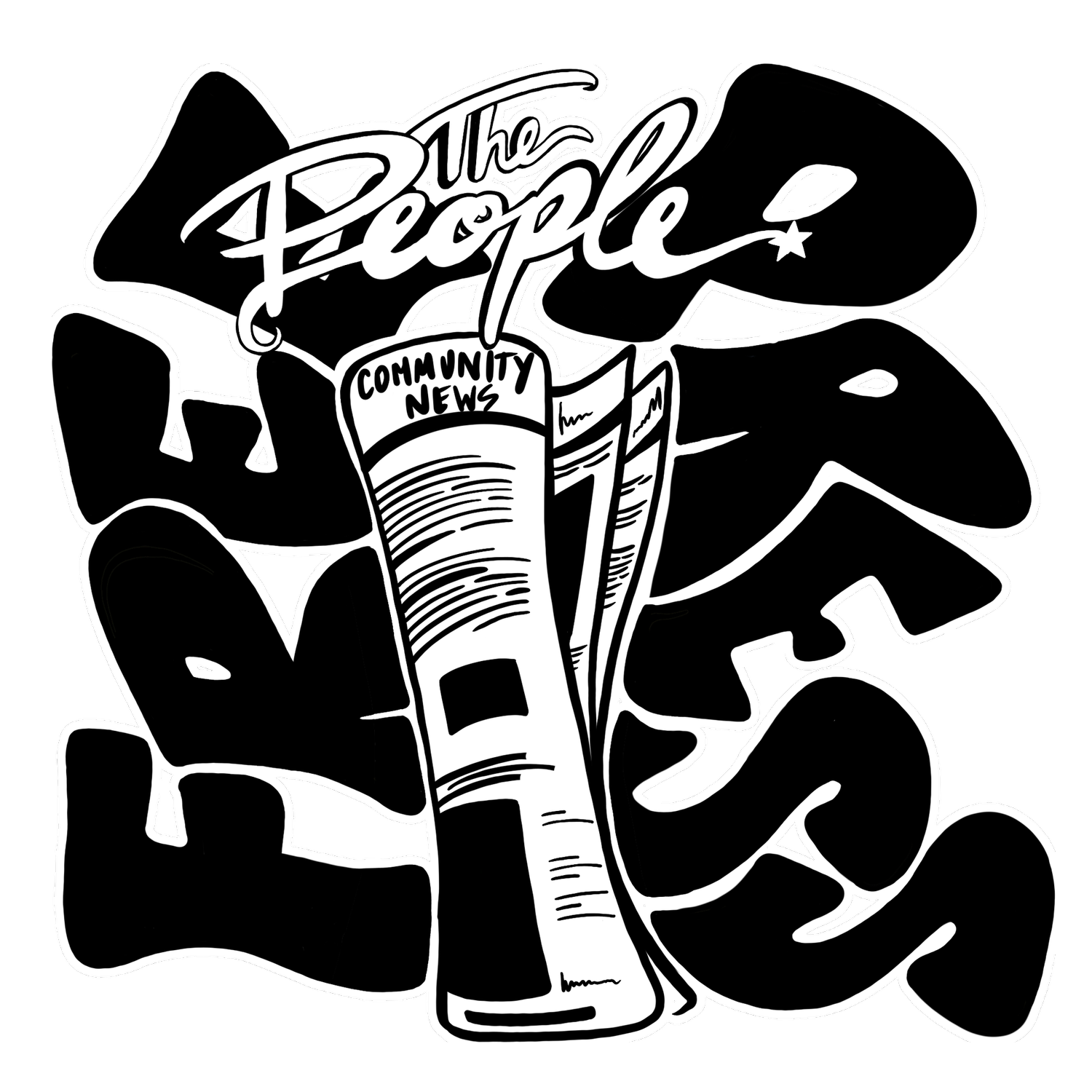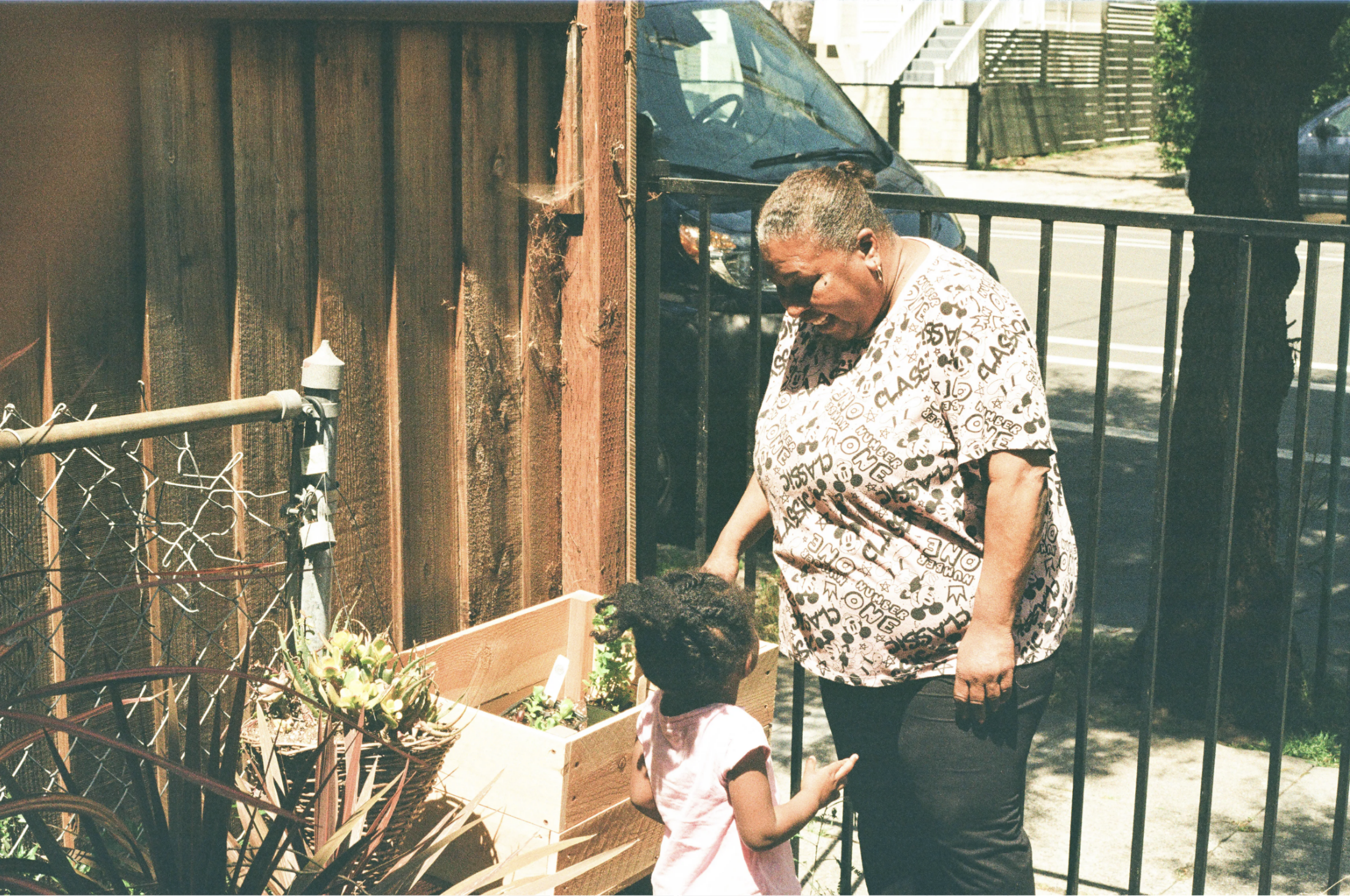Written by Tay Colette
Food is a human right! Sovereign access to food is more important now than ever with rising grocery prices and ever decreasing access to healthy, local, and natural foods. This is especially important for New Afrikans who are experiencing food apartheid. Food apartheid dictates which neighborhoods have access to a variety of nutritious foods and which neighborhoods have limited access to healthful options. Food apartheid highlights how lack of food access is systemic and strategic, deeply rooted in racism and discrimination against our people. Without decolonization programs working toward the liberation and ultimately independence for New Afrikans, the people will continue to suffer from lack of food access. Decolonization programs specifically focused on food sovereignty combat food apartheid through farming the land and feeding the people all while focusing on the objective of building a New Afrikan nation. Food sovereignty rooted in scientific, Pan-Afrikan socialism is a part of the larger process of freeing the people and the land.
Food apartheid is the result of historical and continued racist policies and environmental racism, both of which are rooted in capitalism and imperialism. Both systems were created to exploit the people, land, and resources for the nefarious purpose of corporate greed and domination. Food apartheid encompasses the way that racist policies and systems intentionally withhold or block healthy, accessible, and local food from our communities; it is linked to the way environmental racism operates in our neighborhoods. The same zip codes and areas that are victimized by food apartheid are also exposed to higher levels of pollution and toxic waste. Food apartheid leads to more health problems, lower life expectancy, and reinforces the unacceptable quality of life that is standardized in impoverished communities while nearby zip codes are set up to prosper and literally breathe easier. In fact, food apartheid and environmental racism are acts of genocide. At the International Tribunal in 2021, the United States was charged and found guilty of five counts of genocide. Two of those counts were about environmental racism and health disparities.
These acts of genocide disproportionately affect Black, Brown, and Indigineous peoples. Thus, it is absolutely necessary to examine food and health disparities from a systemic lens to understand that the solution must also be systemic.
Food sovereignty, as a framework, offers a model for transforming what food systems and food accessibility looks like. Julius Nyerere says, “in Africa land was always recognized as belonging to community.” Imperialism and capitalism introduced the concept of land being a commodity, something that can be used for profit as opposed to land being used for collective purposes, such as feeding the people. That is why food sovereignty is not a new movement, rather it is rooted in principles and practices that Afrikan people have utilized through egalitarianism and communalism for centuries.
Afrikan and Indigenous societies across the world have already practiced food sovereignty because they were once sovereign. Working with the land and each other to provide for their communities and develop self-reliance synergistically with nature is not a new phenomenon. Food sovereignty is a movement to get back to these principles and practices considering the current state of the agricultural system that is steeped in environmental racism, apartheid, and genocide of Afrikan and Indigenous people across the globe. It is important to note that food sovereignty cannot be separated from the larger movement to Free the Land and Free the People. Because we won’t have control over the food, without freeing the land!
Food sovereignty is only one part of the larger step by step process to liberation. For example, in post-independence Tanzania, Ujamaa agriculture was one part of the larger socialist, political philosophy of Ujamaa. As a political philosophy, Ujamaa confronted the necessity of larger systemic, socialist change and demonstrated what it could look like on a national scale.
The book Ujamaa: Essays on Socialism by Julius K. Nyerere, an anti-colonial leader who attempted to lead post-colonial Tanzania into being a socialist nation, discusses the concept of Ujamaa at length. This book was written and conceptualized during a period of national Afrikan liberation movements in the 1950s and 1960s. However, Ujamaa as a philosophy was never able to reach its full potential in Tanzania as imperialism and capitalist powers actively undermined its efforts.
Today, as we conceptualize and work towards a world without food apartheid, the concept of Ujamaa agriculture provides foundational thinking for confronting this systemic issue with a systemic solution. Ujamaa agriculture is based on people living communally and autonomously on the land that they farm. The people who farm the land also govern the land and control the means of which the land is used. Moreover, the people who are on the land will practice traditional equality and security, while demonstrating care and responsibility for one another. Additionally, the labor will be divided according to the needs of the people. Ujamaa agriculture is rooted in an ethic of care and autonomy, combining traditional beliefs with the advantages of modern technology to provide sovereignty for the People and the Land.
The fight for food sovereignty is a worldwide movement for Afrikans and Indigenous people across the globe. In response to the continued violence of imperialism, La Via Campesina, an organization central to the food autonomy movement, focuses on cultivating global solidarity for food sovereignty through organizing internationally.
In Oakland, food is not scarce, access is simply limited to the masses by those in power as a means of control, domination, and exploitation. Understanding the historical development of how food apartheid came to be in Oakland is important. Nathan McClintock, a scholar focused on environmental justice and ‘urban’ political economy, conducted a study specifically tracing the ways that food deserts (a by-product of food apartheid) came to be in Oakland. McClintock demonstrates how food apartheid in Oakland is connected to the historical processes of capitalist development, including the way capital flows, dominates, relocates and devastates Black people in the Town. McClintock demonstrates that food deserts do not occur through happenstance, rather they are the result of decades of racist policies and predatory capitalism. This legacy of racist capitalism is the reason that food apartheid continues today.
More recently, Oakland North conducted a study that demonstrates the disparities in food access by breaking down the number of supermarkets versus liquor stores in different Oakland area codes. In 2010, neighborhoods within the majority Black 94621 zip code only had one supermarket, a
Pak ‘N Save, and yet had over 32 liquor stores. Today, Pak ‘N Save is no longer there, yet a quick Google search shows how there are currently over 60 liquor stores in the area. Meanwhile, neighborhoods within the majority white 94611 zip code have access to over four supermarkets and even a Target. Yet, somehow, they have fewer liquor stores than East Oakland. Community Foods, the only full-scale grocery store in predominantly Black West Oakland, opened in 2019 and closed within 3 years.
There is limited access to nutritious food options for people in Oakland who lack transportation, funds, or any other ability to go to the supermarket. At the same time, people in more affluent areas are allowed to enjoy a variety of luxuries: more grocery stores, more parks, and even more coffee shops. Meanwhile people in historically disenfranchised, gentrified, and militarized regions in Oakland are experiencing over-pollution, over-policing, and sustained food apartheid.
To actively combat food apartheid, a method and movement that is anti-capitalist and anti-imperialist is necessary to eradicate and radically transform agriculture and food distribution. Beginning the process of building our own systems is critical for combating capitalism and imperialism. One of the ways People’s Programs puts scientific socialism (which is diametrically opposed to capitalism) into practice, is through our programs for decolonization. Some of these programs work towards food autonomy, such as The People’s Farm as well as our Free Grocery Program, as the crops we harvest from the land go directly toward filling the free grocery boxes we deliver to our neighbors in West Oakland.
According to La Via Campesina, the 6 pillars of food sovereignty explain that food sovereignty focuses on food for the people, values food providers, localises food systems, puts control locally, builds knowledge and skills, and works with nature. These new realities that La Via Campesina are focused on creating have been built, defended, and fought for before, like in Tanzania. These pillars are similar to the principles of Ujamaa agriculture talked about and implemented by Nyerere in Tanzania.
With these pillars and Ujamaa in mind, the People’s Farm is working on practicing food sovereignty with the greater goal of achieving Pan-Afrikanism, which is the complete and total unification and liberation of all Afrikan people under scientific socialism! Currently at The People’s Farm, we are cultivating food sovereignty through our partnership with the Fannie Lou Hamer Black Resource Center at CAL as we steward a 1/2 acre of land in Berkeley. The food is grown for the people, by the people, at no charge. Rooted in a labor of love, as well as ideological alignment, we work toward becoming our own liberators. In 2022, through growing and harvesting over 800 pounds of produce and partnering with other local farms and gardens, The People’s Farm was able to contribute to more than 2,400 grocery boxes to the Oakland community while building the knowledge and skills of volunteers.
Our decolonization programs that are building towards food sovereignty are part of the scientific process towards figuring out how we can meet the material needs of the people while sharing the skills necessary for people and communities to begin the process of becoming sovereign.
Our basic human needs deserve to be met and decolonization programs “are a pivotal part of the process to complete liberation, sovereignty, and empowerment for the poor, oppressed, and houseless.” Through being able to steward the land in Berkeley, cultivate knowledge and skills, and distribute the locally grown organic produce to people who are experiencing food apartheid in Oakland, People’s Programs is utilizing the pillars of food sovereignty and Ujamaa to confront the harms of capitalism and imperialism and work towards the liberation of the New Afrikan nation. We understand that in order to reach the eventual qualitative shifts, like community-run farms and gardens throughout Oakland, we have to contribute to daily and weekly quantitative shifts. Showing up to the garden and other decolonization programs consistently is how we learn to care for the land while caring for our people and while working toward (food) sovereignty.



